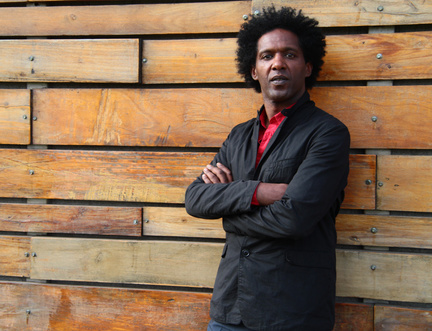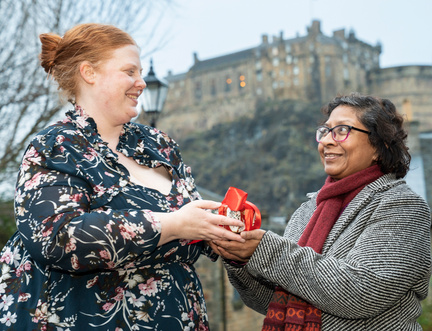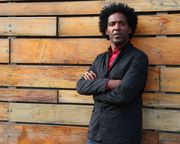More articles Monday 26 August 2019 2:00pm
“Art saves lives,” says Lemn Sissay

“Family is a set of disputed memories between one group of people over a lifetime. I sort of realised that at eighteen I had nobody to dispute the memory of me,” poet Lemn Sissay said during an appearance at the Book Festival on Satuday night, where he discussed his new autobiography My Name is Why with Scottish poet Jenny Lindsay .
Sissay’s book looks at his life, from his early years in foster care to being removed from his foster parents at twelve and placed in care homes, described as “Orwellian and Kafkaesque”, to his thirty-year battle to gain access to his files.
“I proved all these things. I took the government to court before I did this book… I have proved this legally, emotionally. They stole my family, they imprisoned me, they changed my name, they gave me to inadequate and incapable foster parents.”
Born to an Ethiopian immigrant in England, Sissay was taken from his mother and placed with a foster family at three months old. Sissay’s family had three children of their own by the time he joined them, and the cracks in the familial unit had already begun to show. Sissay said that his role in the household was to be “the fall guy”, which he sees as a common issue for children in care or in foster families.
“The worst thing about this, is that child will then take the blame. It’s easy. We’ve got a whole narrative, ‘we went out to save this child and he was just too much, too challenging.”
Exaggerated reports of Sissay's actions would be reported back to social workers, with perfectly normal if slightly naughty behaviour exaggerated until he was described as a thief and as threatening to kill the entire family except his foster sister.
Sissay says these deliberate exaggerations turned him from a normal child to a reviewed experiment. “That exaggeration, very slight, then gets reported to the social worker, that then becomes a case in my files against me.
“Normal childhood actions of being a little naughty became weaponised... a natural thing that a child will do is seen as a threat to the institution. Therefore we need rules to contain them from being bad, from being their natural self.
“Anybody who has got a child will know, and some people here have had children who’ve taken drugs, children who’ve got drunk, children who stay out late at night, children who have sworn in the front room, children who have threatened to run away, children who have said the most hurtful things to their parents that they don’t believe that their own child could say that. A child in care does any of that, they are locked away, they get told they are intrinsically bad human beings and they are not, and they never were.”
For Sissay, the hole his foster parents created when he was put into a care home at twelve will never be filled. He is glaringly aware of the fact that he doesn’t have a familial support system around him during Christmases and birthdays, but that poetry does help fill the gap in its own way.
“Art saves lives, it literally save lives. It doesn’t hide, the truth will out however unpalatable it might be and how it may not fit with any institutional ideas of how a human being can do. Art is how we translate the human spirit. That’s why you have art and religions. That’s why people sing. That’s why we read poems at funerals and weddings, we need some bridge between the spiritual, the physical, the past, the present, the future. Something that lifts us to a higher place, that celebrates our humanity.
“Poetry does that. It is a warrior for the human spirit.”
Look, Listen & Read
- 2025 Festival:
- 9-24 August
Latest News
 Communities Programme participants celebrate success of 2024
Communities Programme participants celebrate success of 2024




